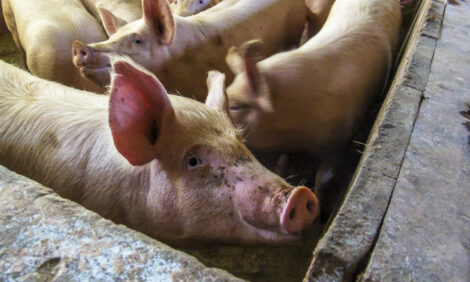



New Light Shed on Autoimmune Haemolytic Anaemia
GLOBAL - This is the first report of autoreactive anti-actin antibodies involved in the pathogenesis of autoimmune haemolytic anaemia (AHIA), say K.M. Felder and co-authors in a recently published paper.K.M. Felder of the Institute of Veterinary Bacteriology at the University of Zurich in Switzerland and co-authors there and at Ludwig-Maximilians-University in Munich, Germany and the University for Veterinary Medicine in Vienna, Austria have published a paper on their study of the antibodies to actin in autoimmune haemolytic anaemia in pigs in BMC Veterinary Research.
In the introduction to their paper, the researchers explain that in autoimmune haemolytic anaemia (AIHA), autoreactive antibodies directed against red blood cells are up-regulated, leading to erythrocyte death. Mycoplasma suis infections in pigs induce AIHA of both the warm and cold types. The aim of this study was to identify the target autoantigens of warm autoreactive IgG antibodies. Sera from experimentally M. suis-infected pigs were screened for autoreactivity.
Results
Actin-reactive antibodies were found in the sera of 95 per cent of all animals tested. The reactivity was species-specific, i.e. reactivity with porcine actin was significantly higher than with rabbit actin. Sera of animals previously immunised with the M. suis adhesion protein MSG1 showed reactivity with actin prior to infection with M. suis, indicating that molecular mimicry is involved in the specific autoreactive mechanism. A potentially cross-reactive epitope was detected.
Conclusions
This is the first report of autoreactive anti-actin antibodies involved in the pathogenesis of autoimmune haemolytic anaemia, say Felder and co-authors.
Reference
Felder K.M., K. Hoelzle, K. Heinritzi, M. Ritzmann and L.E. Hoelzle. 2010. Antibodies to actin in autoimmune haemolytic anaemia. BMC Veterinary Research, 6:18. doi:10.1186/1746-6148-6-18.
Further Reading
| - | You can view the full paper by clicking here. |








